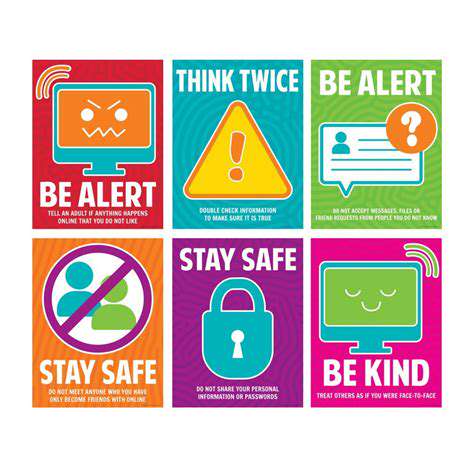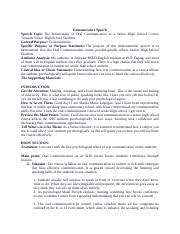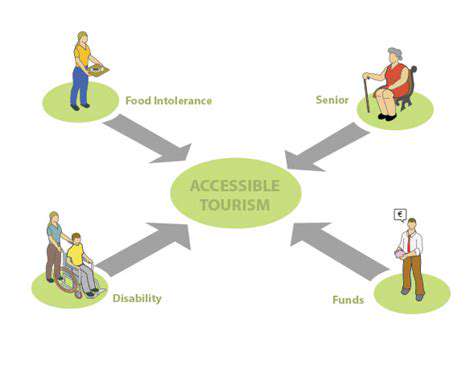Guide to Traveling with Pets on Planes
Essential Pet Supplies for a Smooth Journey
Essentials for Pre-Flight Preparation
Before embarking on your pet's air travel adventure, meticulous preparation is key. This involves ensuring your furry friend is healthy and up-to-date on vaccinations. Crucially, obtain all necessary health certificates from your veterinarian, as these are often mandated by airlines and airport authorities. This proactive step guarantees a smooth and stress-free travel experience for your pet, minimizing potential delays or complications.
Proper identification is equally important. Make sure your pet wears a collar with an ID tag displaying their name and your contact information. Consider a microchip as an extra layer of security. In the event of a mishap, this crucial identification will assist in swiftly reuniting you with your beloved companion.
Choosing the Right Carrier
Selecting the appropriate pet carrier is paramount for a comfortable and safe journey. Opt for a hard-sided carrier that provides adequate ventilation to prevent overheating. Ensure the carrier is airline-approved and appropriately sized for your pet to stand, turn around, and lie down comfortably without feeling cramped. A well-fitting carrier minimizes stress and anxiety for your pet during the flight.
Consider the carrier's durability and ease of cleaning. A sturdy carrier will withstand the rigors of travel, while an easy-to-clean design simplifies post-travel hygiene. Invest in a carrier that meets your pet's needs and provides peace of mind for you during the journey.
Packing for Comfort and Safety
Packing essentials for your pet is crucial for a comfortable and safe flight. Essential items include familiar bedding or blankets that provide comfort and a sense of security. A supply of your pet's favorite food and water should be included, and remember to pack enough to last the duration of the trip. Be mindful of any potential dietary restrictions or allergies your pet may have.
Bring along any necessary medications, including any supplements or pain relievers, and keep them clearly labeled and readily accessible. Remember to pack any special items, such as toys, treats, or calming aids, that your pet relies on for stress relief. This will help ensure a less stressful and more enjoyable flight for your pet.
Understanding Airline Regulations
Familiarise yourself with the specific airline regulations regarding pet travel. Different airlines may have varying requirements regarding pet carriers, size limitations, and the acceptable types of animals. Thorough research is essential to ensure your pet's smooth travel process and to avoid any potential issues at the airport.
Knowing the regulations will help you prepare accordingly, and will prevent any unnecessary stress or unexpected issues. Understanding the baggage allowance for pets is also essential for seamless travel.
Ensuring a Smooth Check-in Process
Understanding the check-in process for pets is crucial for a smooth journey. Arrive at the airport well in advance to allow sufficient time for the check-in procedure. Ensure your pet is properly restrained in the carrier and that all necessary documents are presented to the airline staff. Confirm your pet's weight and dimensions with the airline to avoid any potential issues.
Managing In-Flight Needs
Consider your pet's needs during the flight. Bring along a supply of water and food to prevent dehydration. Ensure the carrier has adequate ventilation to maintain a comfortable temperature. Keep your pet calm and relaxed by using calming aids or familiar objects. Monitor your pet closely throughout the flight and contact flight attendants if necessary.
Be prepared to address any potential issues, such as anxiety or discomfort. Having a plan for these situations can help ensure a positive travel experience for you and your pet.
Handling Potential Stress and Anxiety During Air Travel

Understanding the Nature of Stress and Anxiety
Stress and anxiety are common human experiences, often triggered by various life events and circumstances. Recognizing the difference between manageable stress and debilitating anxiety is crucial for effective coping strategies. Understanding the specific triggers and patterns of your stress responses is the first step toward managing them effectively. Identifying the root causes of your anxiety is essential to developing targeted solutions.
Stress, in moderation, can even be beneficial, motivating us to perform under pressure. However, chronic or overwhelming stress can negatively impact our physical and mental well-being. Recognizing the signs of escalating stress and anxiety is vital for intervention and proactive management.
Identifying Personal Stressors
Identifying personal stressors is a critical component of managing stress and anxiety. This process involves introspection, journaling, and potentially seeking support from trusted individuals or professionals. Pinpointing the specific events, situations, or thoughts that trigger stress reactions is key to developing personalized coping mechanisms. Consider keeping a journal to track your stressors, their intensity, and the associated emotions.
Common stressors include work pressures, relationship issues, financial difficulties, and major life changes. Recognizing these patterns helps you prepare and respond effectively.
Developing Healthy Coping Mechanisms
Developing healthy coping mechanisms is essential for managing stress and anxiety effectively. These techniques can range from simple relaxation exercises to more involved therapies. Effective coping mechanisms are crucial for mitigating the negative impacts of stress on mental and physical health. Implementing these strategies on a consistent basis is key to long-term well-being.
Techniques like deep breathing, mindfulness exercises, and regular physical activity can significantly reduce stress levels. Engaging in activities that bring joy and relaxation, like spending time in nature or pursuing hobbies, can also be beneficial.
Seeking Support and Professional Guidance
Seeking support from friends, family, or mental health professionals is a crucial step in managing stress and anxiety. Talking about your feelings and experiences can provide valuable perspective and alleviate feelings of isolation. Talking to a trusted friend or family member can provide immediate emotional support and validation. Don't hesitate to reach out to a mental health professional for personalized guidance and treatment if needed.
Professionals can offer evidence-based strategies and therapies tailored to individual needs. This support can significantly improve coping skills and overall well-being. It's important to remember that seeking help is a sign of strength, not weakness.
Prioritizing Self-Care and Relaxation
Prioritizing self-care and relaxation techniques is essential for managing stress and anxiety. Making time for activities that promote relaxation and rejuvenation is crucial for maintaining mental and emotional well-being. Regular self-care routines can reduce the frequency and intensity of stress responses. These activities can include taking breaks during the day, practicing mindfulness, or engaging in hobbies.
Engaging in activities you enjoy, such as spending time in nature or pursuing a creative hobby, can significantly contribute to stress reduction. These activities provide a much-needed respite from daily pressures and promote a sense of calm.
The Importance of Healthy Lifestyle Choices
Adopting a healthy lifestyle is directly linked to stress and anxiety management. Regular exercise, a balanced diet, and sufficient sleep are fundamental for overall well-being. Maintaining a healthy lifestyle is a cornerstone of effective stress management. These elements are intricately connected to emotional regulation and resilience.
Sufficient sleep is crucial for emotional regulation and cognitive function. A balanced diet provides the necessary nutrients to support physical and mental health, contributing to overall resilience.











